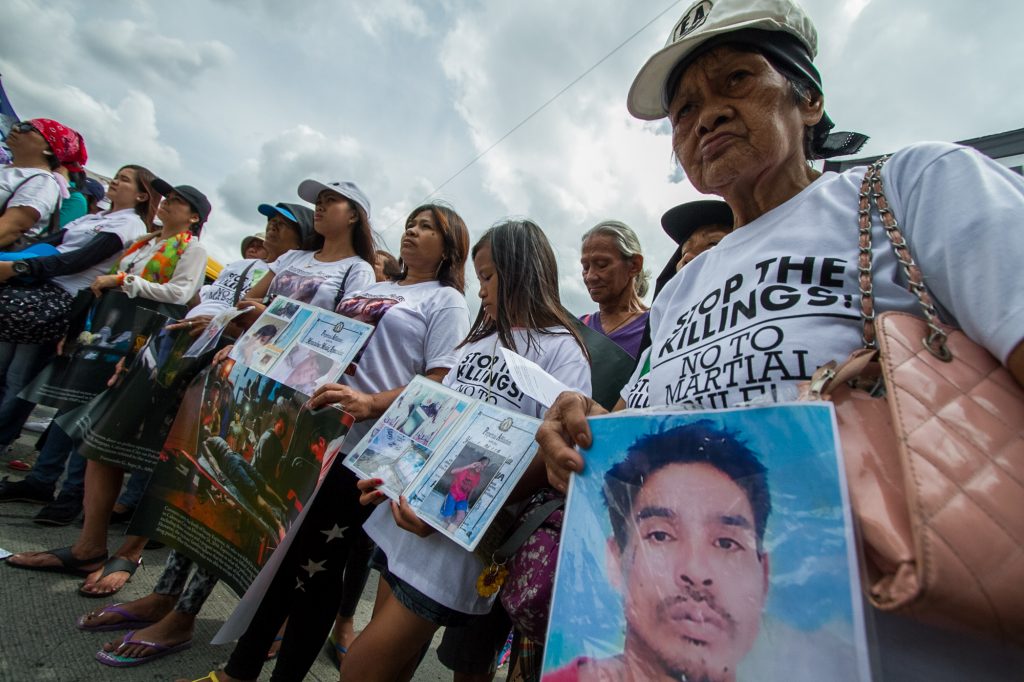
The National Council of Churches in the Philippines (NCCP) expressed its solidarity with the families of victims of drug-related killings in the country as it welcomed the decision of the prosecutor of the International Criminal Court (ICC) to investigate the cases.
“After a long and arduous struggle for justice, a ray of hope has been cast,” read a statement from the Protestant council. The group said the decision of the ICC prosecutor is “a step closer to our prayer for truth and accountability, of bringing justice to the kith and kin of those who were killed.”
In a statement, Bishop Reuel Norman O. Marigza, general secretary of the NCCP, said “it is just and moral for the (Philippine) government to cooperate with the ICC, to render justice to the hundreds of thousands of victims who were unfairly executed in this drug war.”
The Protestant bishop was reacting to recent statements by the presidential palace that it would not be cooperating in the possible investigation. President Rodrigo Duterte’s spokesman, Harry Roque, said any decision to move forward with the investigation “is legally erroneous, politically motivated.”
ICC chief prosecutor Fatou Bensouda announced on the Monday the conclusion of the preliminary examination into the situation in the Philippines and requested judicial authorization to proceed with a formal criminal investigation.
Bensouda said “crimes against humanity” could have been committed in the country since 2016 with the implementation of the government’s “war on drugs.”
Even as the Philippines have already withdrawn from the Rome Statute, “the ICC retains jurisdiction over the Philippine territory during the period it was a State Party from 01 November 2011 up to 16 March 2019,” said Bensouda.
The Rome Statute of the International Criminal Court is the treaty that established the International Criminal Court. It was adopted at a diplomatic conference in Rome, Italy on July 17, 1998, and it entered into force on July 1, 2002.
The Philippines ratified the Rome Statute on August 30, 2011, and it entered into force from Nov. 1, 2011.
The Philippines officially withdrew from the ICC on March 17, 2019, a year after Duterte publicly announced the nation’s withdrawal. The withdrawal was triggered by ICC’s initiation of the investigation into the “war on drugs” in the Philippines.
Bishop Marigza, however, said the “bold and crucial step of the ICC” to open its investigation in the county “signal how the international community is standing with us in seeking for accountability, especially in a context where the Philippine government continuously denies them justice.”
“This decision of the ICC comes as a result of the tireless efforts of the families, lawyers, and human rights defenders who tirelessly fought and remained resolute in the quest for justice,” said the bishop in his statement.
“We hope that the ICC and the international community will continue to journey with victims …. As a council of churches, we reiterate the call for the continued pursuit of justice and accountability,” he added.
The National Council of Churches in the Philippines is the largest aggrupation of mainline Protestant and non-Roman Catholic Churches in the Philippines.
Source: Licas Philippines
0 Comments